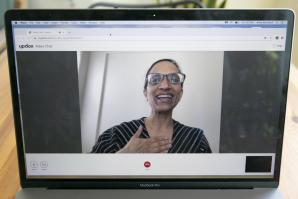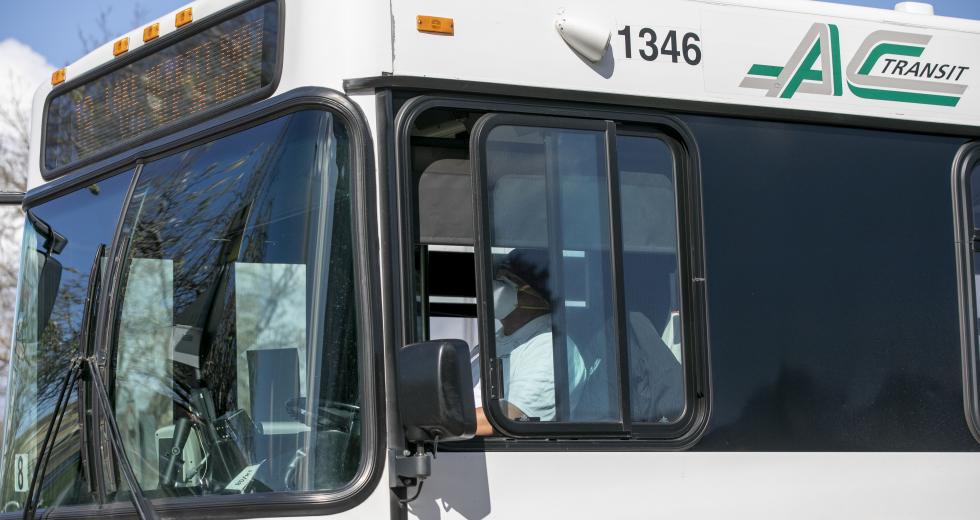California’s essential workers will get new workers’ compensation protections under an executive order signed Wednesday by Gov. Gavin Newsom — a move that could cost the state billions of dollars in claims from COVID-19-infected workers.
The order presumes that workers — including nurses, janitors, first responders, farmworkers and grocery workers who contracted COVID-19 — were infected on the job and puts the burden on employers to prove otherwise. The order, which lasts for two months, covers workers who tested positive for COVID-19 within 14 days of working after Newsom’s March 19 statewide stay-at-home order.
Click here for more coronavirus coverage
“We want to keep workers healthy and we want to keep them safe,” Newsom said Wednesday during his daily briefing. “The worst thing we can do is have a worker spread (disease) because he or she can’t afford not to go to work.”
The order had been the subject of intense lobbying by both labor and business groups in recent weeks.
Extending “presumptive eligibility” to all essential workers could cost the state billions annually, according to a recent analysis from the Workers’ Compensation Insurance Rating Bureau of California. It gave a wide-ranging estimate: between $2.2 billion and $33.6 billion.
While a number of states have extended similar “presumptive eligibility” protections to varying groups of workers – mostly health care workers and first responders – California goes further than many in protecting all essential workers.
“It’s wonderful news,” said Ramona Moll, an emergency room nurse at UC Davis Medical Center in Sacramento. She said she believes she was infected in March when, wearing only a surgical mask, she tried to help an elderly COVID-19 patient who was struggling to breathe.
Moll was hospitalized and too sick to work for more than a month. Finally, she was cleared to return to work on Thursday on a modified shift — eight hours instead of her usual 12.
“I was 100 percent certain that I got infected at work, but the hospital was casting doubt on that,” said Moll, 48, of Elk Grove. “No one can tell me whether I’m going to have long-term repercussions from COVID-19. It’s virtually impossible to pinpoint the exact moment you got infected. To have this executive order just relieves you of such a burden. I’m very excited and happy for everyone affected by this.”
She said she used her vacation time and got paid leave from her hospital while ill, but she plans to file a workers compensation claim for protection should the effects of her illness resurface.
Labor groups quickly praised the executive order.
“California continues to set the national standard for worker protection during this crisis,” California Labor Federation Executive Secretary-Treasurer Art Pulaski said in a statement. “Gov. Newsom’s order today adds a vital layer of protection to essential workers putting their lives at risk to provide for our families during this pandemic.”
The California Chamber of Commerce said the state should rely instead on the unemployment protections already extended to workers.
“The Executive Order issued today will unnecessarily and significantly drive up costs for California employers through increased workers’ compensation insurance rates at a time when they are struggling to keep Californians employed,” said its statement. “The private sector did not cause this crisis and it should not be the safety net used to pay for this crisis — that is the role of government.”
California business groups have not yet said whether they would sue to block the executive order as Illinois business groups did when that state’s workers’ compensation commission extended presumptive eligibility protections to all essential workers. A judge issued a temporary restraining order blocking that rule.
The California Hospital Association supports the executive order, the industry group’s president and CEO, Carmela Coyle, said Wednesday. “It will clearly be a cost, but in this case doing well by our workers is the right thing to do.”
The order’s impact on two legislative proposals currently being considered by state lawmakers remains unclear.
AB 664 is sponsored by the California Nurses Association and introduced by Democratic Assemblymembers Jim Cooper of Elk Grove and Lorena Gonzalez of San Diego. It would grant “presumptive eligibility” to front-line health workers and first responders such as police and firefighters if they contract COVID-19 or any other infectious disease — but only if the state or local government has declared a state of emergency.
A second proposal, SB 1159 by Democratic Sen. Jerry Hill of San Mateo, would apply to a larger group of essential workers, but cover only COVID-19 and would continue to allow employers to contest whether an employee actually contracted the infection at work.
CalMatters.org is a nonprofit, nonpartisan media venture explaining California policies and politics.
–
Stay up to date on the effects of the coronavirus on people and business in the Capital Region: Subscribe to the Comstock’s newsletter today.
Recommended For You

Virtual Medical Visits Are the New Normal During the Coronavirus Pandemic
California doctors are diagnosing anything from appendicitis to strep throat with only a phone during the coronavirus pandemic. Video visits and conversations are the closest doctors can get to patients who are sheltering in place and avoiding potential exposure from doctor visits.

The Coronavirus Challenge
The pandemic is exposing cracks in our systems, but it’s also an opportunity to strengthen systems
Before the outbreak and spread of the new coronavirus, disruptive technologies, global competition and instant 24/7 connectivity made forecasting difficult. Today, the sheer magnitude and instability triggered by COVID-19 has made the road ahead far less clear. Or has it?



